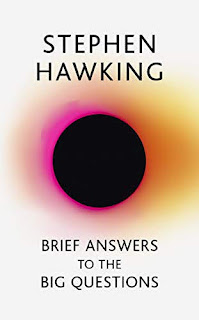Paula Gooder Phoebe - A Story
I remember how 101 Best Bible Stories first got me reading Scripture. Where someone honours the biblical accounts by rewriting them imaginatively yet faithfully they engage a wider readership. In Phoebe Paula Gooder opens up the world of the first Christians using her New Testament scholarship to bring scripture alive through writing a life of Paul’s coworker Phoebe.
You can engage in the book in two ways. Two thirds of it is a well written 32 Chapter story centred on Phoebe. The last third reflects back on the story providing notes on the chapters. Besides explaining or justifying the plot, the notes further open up the world of the first century and the emergence of Christianity within it. Rome, Corinth and Jerusalem are principal places of interest. Gooder builds from the verses that mention Phoebe in Romans Chapter 16: I commend to you our sister Phoebe, a deacon of the church at Cenchreae, so that you may welcome her in the Lord as is fitting for the saints, and help her in whatever she may require from you, for she has been a benefactor of many and of myself as well.
It's a story always on the move linked to the last movement of Paul from Jerusalem to Rome and Phoebe’s presumed carriage of his letter to the Romans from Corinth to the Christian community in Rome. The journeys, including Paul’s plan to journey the good news to Western Europe, are solidly grounded in scripture. What’s powerful alongside these core elements of the narrative is the way Paula Gooder imagines and presents Phoebe’s faith journey. This is nurtured by new Christian companions she finds in Rome who help encourage and organise her imagined ongoing mission. The author presents a balanced critique of Paul through the way his letter is imagined to have been received by different parties in Rome.
When we read the epistles unlike the Gospels they come at us cold with little context. Through Phoebe Paula Gooder provides an imaginative context for Paul’s letters using her knowledge of him and her own capacity to think herself into how people Paul wrote to might have responded to the arrival of a letter like that to Rome. Such a substantive letter, pillar of Christianity, makes a good talking point throughout Phoebe’s story with its affirmation of the death-defying love of God shown us in Jesus Christ. Many of the conversations are about the practical significance of the good news of Jesus for folk with openness to face up to their need of grace.
Since the book aims to inform as much as entertain the author disclaims it as a novel, apologising for the copious commentary following on that would not suit as footnotes to the text proper. Paula Gooder half apologises for going with the challenge to Christianity’s historical take against female ordination whilst showing determination to challenge what she sees as misinterpretation of Paul. ‘I have lost count of the times I have been told that Paul is ‘bad for women’, or something similar. You will gather, as you read, that I do not agree’.
As Rowan Williams writes in his commendation: ‘Very few people are as expert as Paula Gooder in communicating biblical scholarship clearly and creatively, and this first venture into historical story-telling will bring the biblical text freshly alive for a wide and enthusiastic readership’.
Paula Gooder Phoebe - A Story
Hodder & Stoughton 2018 £8.99 ISBN 9781473669727 320pp
Canon John Twisleton 19th July 2018




Comments
Post a Comment